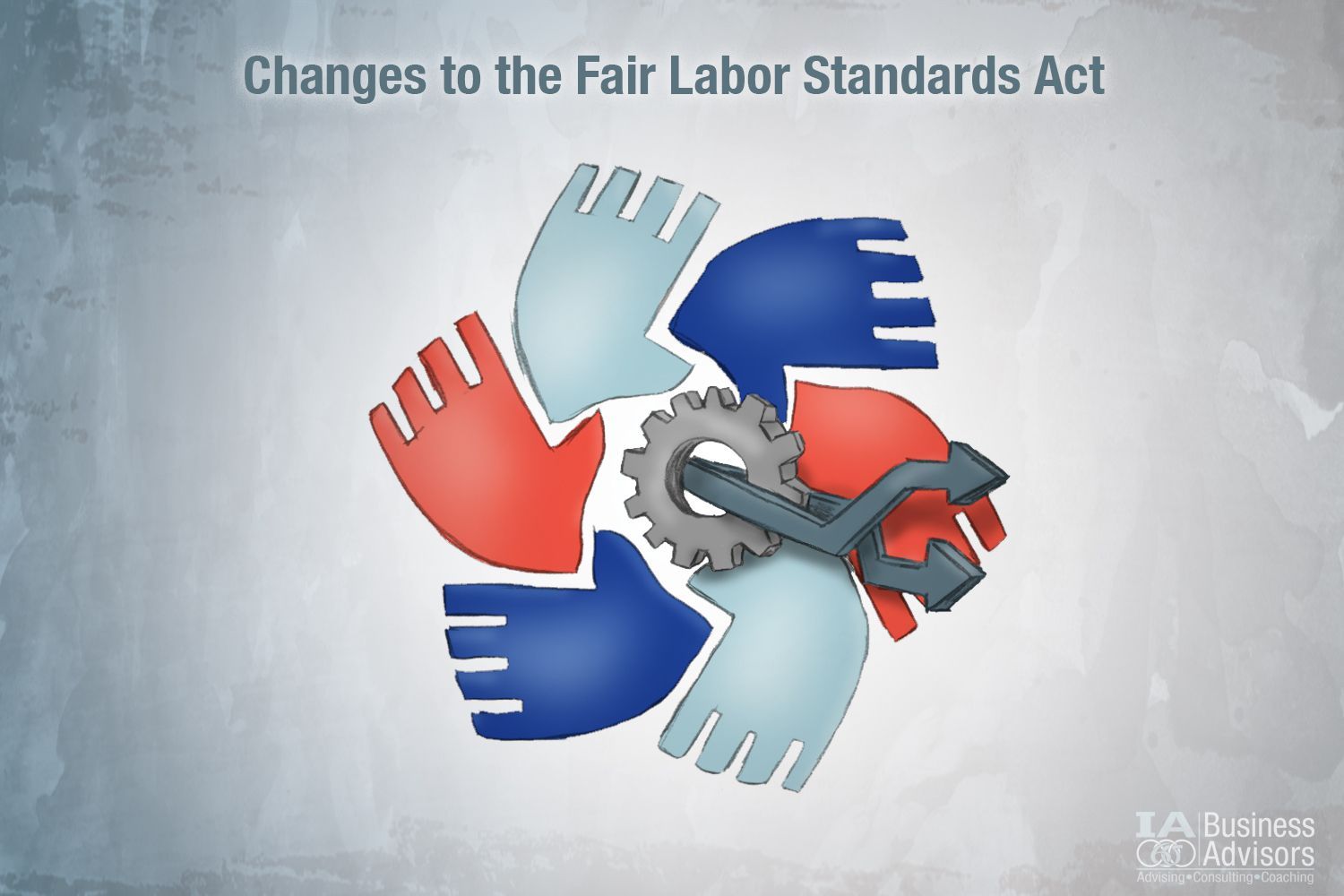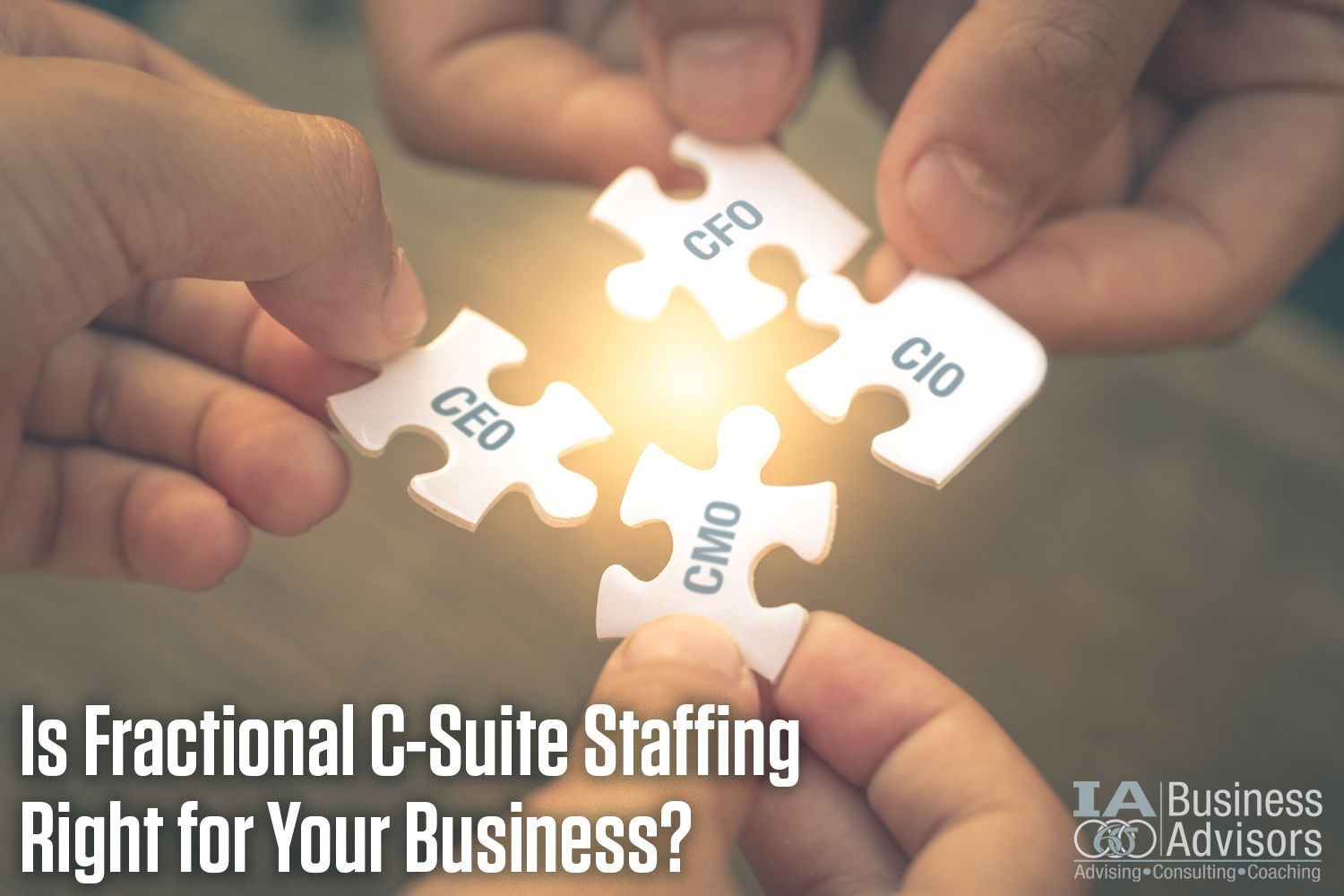Changes to the Fair Labor Standards Act

Fair Labor Standards Act consulting
The Fair Labor Standards Act (FLSA) is a federal law that requires employers to pay ALL employees overtime if they work more than 40 hours per week UNLESS an employee fits within a certain exemption. Exemptions require a two-factor analysis for each position (except the outside sales exemption): 1) Salary Threshold and 2) Job Duties Test
Changes to this law, effective January 1, 2020, are the salary threshold for the executive, administrative, and professional exemptions. Under the federal FLSA, this will increase from $23,660 ($455 per week) to $35,568 ($684 per week).
The total annual compensation requirement for “highly compensated employees,” subject to a minimal duties test, will also increase from $100,000 to $107,432. Employers may use commissions, nondiscretionary bonuses, and other incentive compensation to satisfy up to 10% of the salary requirement, provided that these payments occur no less frequently than annually, and subject to a single “catch-up” payment within one pay period of the close of the year.
The below is the high-level summary of the changes to the FLSA. There are also several fact sheets that break this down even further and can be found by clicking here.
It is a two-step process to determine if an employee should receive overtime:
Salary Threshold:
- Paying someone a salary does not mean they are exempt.
- The Illinois law did not change, it is the same lower threshold, but they recommend following the federal threshold to make sure you are in compliance.
- If the employee makes under $35,568 ($684 per week) then they should be paid overtime.
- This amount can include non-discretionary bonus and commission, but only up to 10% ($3,556)
- The employer can do a catchup payment at the end of the year.
- If the employee’s compensation is over this threshold then move to step 2.
Job Duties Test:
- If the employee makes more than the threshold and they meet one of the following criteria, then they do not need to be paid overtime. (We give you a high-level overview of the six below, however you can find a more in-depth explanation by clicking here.)
Executive:
- To qualify for the executive employee exemption, all
the following tests must be met:
- The employee must be compensated on a salary basis (as defined in the regulations) at a rate not less than $684 per week;
- The employee’s primary duty must be managing the enterprise, or managing a customarily recognized department or subdivision of the enterprise;
- The employee must customarily and regularly direct the work of at least two or more other full-time employees or their equivalent;
- The employee must have the authority to hire or fire other employees, or the employee’s suggestions and recommendations as to the hiring, firing, advancement, promotion, or any other change of status of other employees must be given particular weight.
Administrative:
- To qualify for the administrative employee exemption, all
the following tests must be met:
- The employee must be compensated on a salary or fee basis (as defined in the regulations) at a rate not less than $684 per week;
- The employee’s primary duty must be the performance of office or non-manual work directly related to the management or general business operations of the employer or the employer’s customers;
- The employee’s primary duty includes the exercise of discretion and independent judgment with respect to matters of significance.
Professional:
- To qualify for the learned professional employee exemption, all
the following tests must be met:
- The employee must be compensated on a salary or fee basis (as defined in the regulations) at a rate not less than $684 per week;
- The employee’s primary duty must be the performance of work requiring advanced knowledge, defined as work which is predominantly intellectual in character and which includes work requiring the consistent exercise of discretion and judgment;
- The advanced knowledge must be in a field of science or learning;
- The advanced knowledge must be customarily acquired by a prolonged course of specialized intellectual instruction.
Outside Sales:
- To qualify for the outside sales employee exemption, all
the following tests must be met:
- The employee’s primary duty must be making sales (as defined in the FLSA), or obtaining orders or contracts for services or for the use of facilities for which a consideration will be paid by the client or customer;
- The employee must be customarily and regularly engaged away from the employer’s place or places of business.
The salary requirements of the regulation do not apply to the outside sales exemption. An employee who does not satisfy the requirements of the outside sales exemption may still qualify as an exempt employee under one of the other exemptions allowed by Section 13(a)(1) of the FLSA and the Part 541 regulations if all the criteria for the exemption is met.
Highly Compensated Employees:
- The regulations contain a special rule for “highly compensated” employees who are paid total annual compensation of $107,432 or more. A highly compensated employee is deemed exempt under Section 13(a)(1) if:
- The employee earns total annual compensation of $107,432 or more, which includes at least $684 per week paid on a salary or fee basis;
- The employee’s primary duty includes performing office or non-manual work;
- The employee customarily and regularly performs at least one of the exempt duties or responsibilities of an exempt executive, administrative, or professional employee.
Thus, for example, an employee may qualify as an exempt highly compensated executive if the employee customarily and regularly directs the work of two or more other employees, even though the employee does not meet all the other requirements in the standard test for exemption as an executive.
Computer Employees:
- To qualify for the computer employee exemption, all
the following tests must be met:
- The employee must be compensated either on a salary or fee basis at a rate not less than $684 per week or, if compensated on an hourly basis, at a rate not less than $27.63 an hour;
- The employee must be employed as a computer systems analyst, computer programmer, software engineer or other similarly skilled worker in the computer field performing the duties described below;
- The employee’s primary duties must consist of:
- The application of systems analysis techniques and procedures, including consulting with users, to determine hardware, software or system functional specifications;
- The design, development, documentation, analysis, creation, testing or modification of computer systems or programs, including prototypes, based on and related to user or system design specifications;
- The design, documentation, testing, creation or modification of computer programs related to machine operating systems; or
- A combination of the aforementioned duties, the performance of which requires the same level of skills.
The computer employee exemption does not include employees engaged in the manufacture or repair of computer hardware and related equipment. Employees whose work is highly dependent upon, or facilitated by, the use of computers and computer software programs (e.g. engineers, drafters, and others skilled in computer-aided design software), but who are not primarily engaged in computer systems analysis and programming or other similarly skilled computer-related occupations identified in the primary duties test described above, are also not exempt under the computer employee exemption.
The Construction Industry Under the Fair Labor Standards Act (FLSA)
Characteristics
Businesses involved in this industry are engaged in the activities of new construction or reconstruction. The repair or renovation of existing commercial and/or residential structures, as well as roadway and bridge construction, are also a part of this industry. The following work activities are included in the construction industry: painting, sandblasting, tuckpointing, roofing, guttering, spouting, water well drilling, installation of flooring, and landscaping.
Coverage
A business in the construction industry must have two or more employees and have an annual gross sales volume of $500,000 or more to be subject to the FLSA. Individual coverage applies to employees whose work regularly involves them in commerce between states (“interstate commerce”). Any person who works on or otherwise handles goods that are moving in interstate commerce or who works on the expansion of existing facilities of commerce is individually subject to the protection of the FLSA and the current minimum wage and overtime pay requirements, regardless of the sales volume of the employer. Other persons, such as guards, janitors, and maintenance employees who perform duties which are closely related and directly essential to such interstate activities are also covered by the FLSA.
© Individual Advantages, LLC 2020
The post Changes to the Fair Labor Standards Act appeared first on IA Business Advisors.












